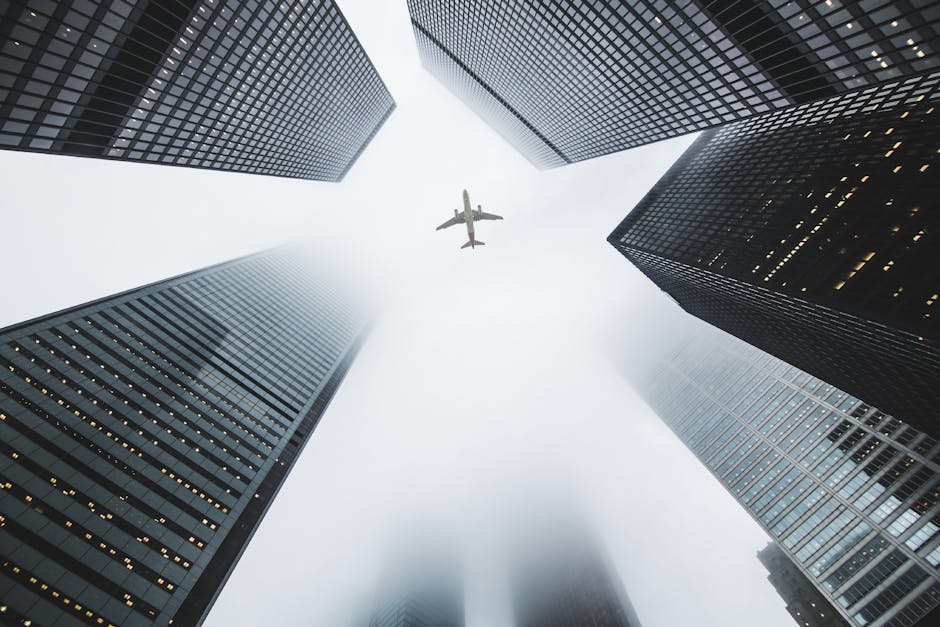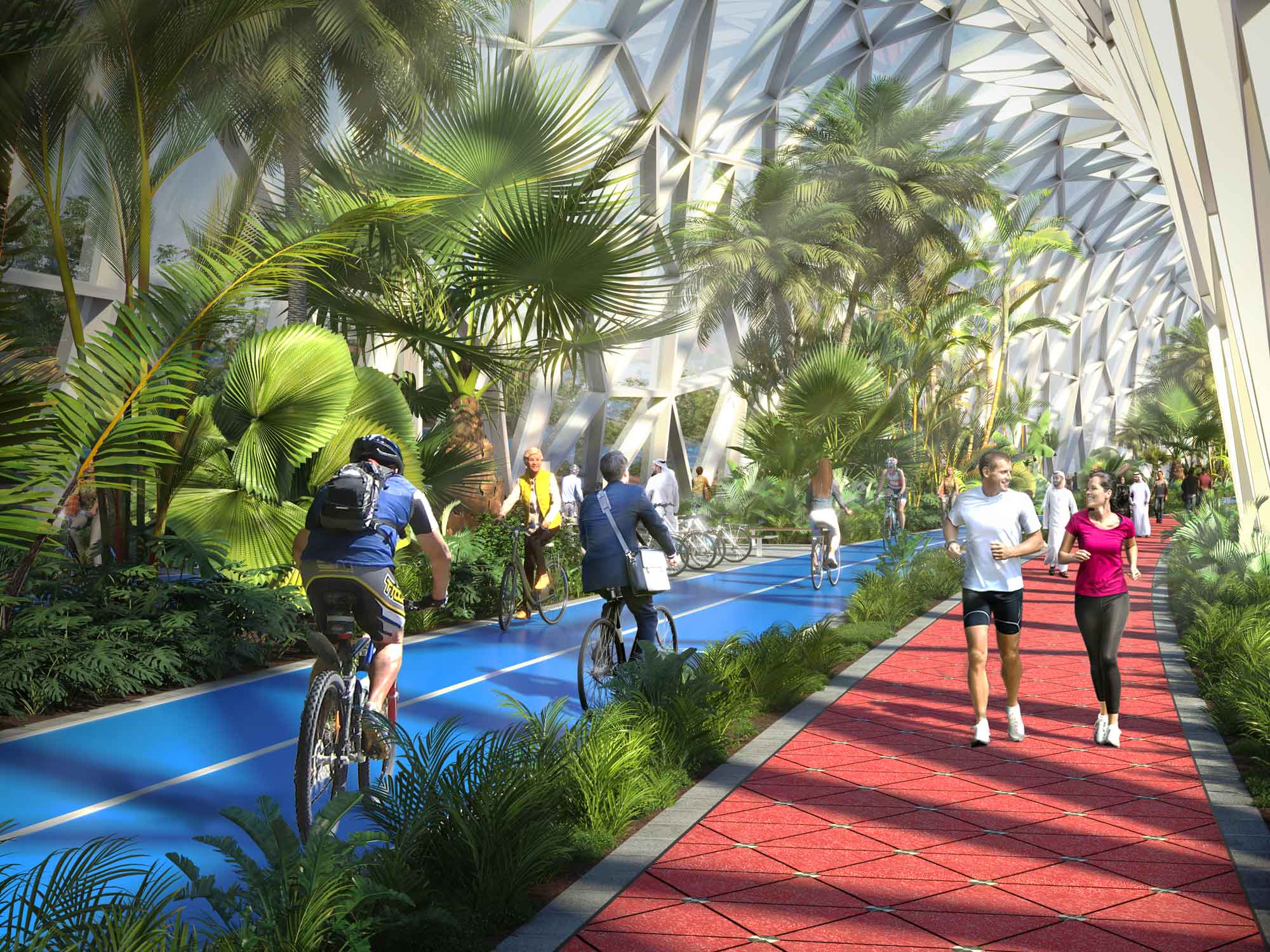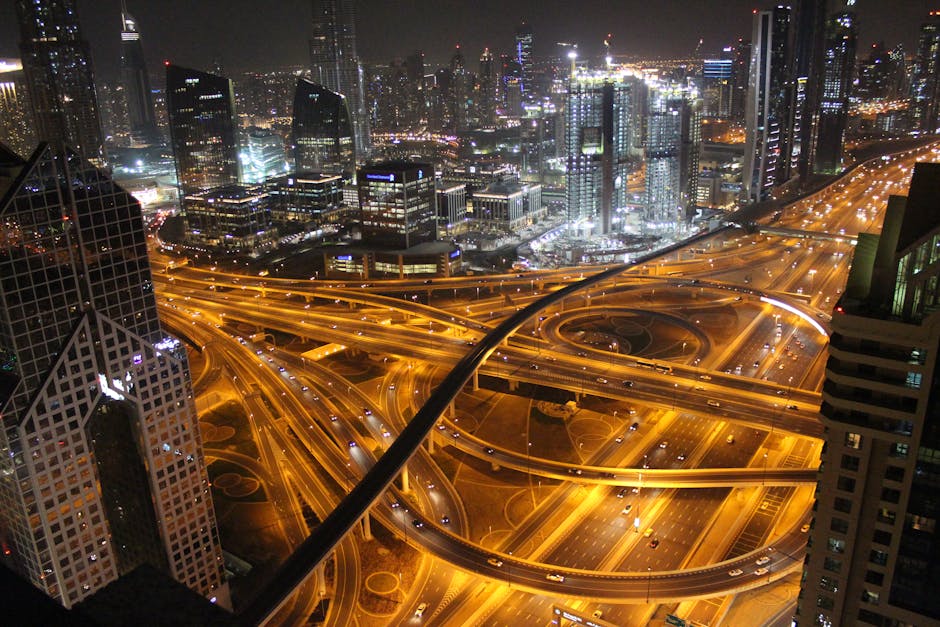- Key Takeaways
- The Blueprint for a Dubai Global Hub
- A Magnet for Global Business
- Innovation as an Engine
- The Human Capital Advantage
- Real Estate: The Tangible Asset
- Beyond the Concrete: A Sustainable Future
- Conclusion
- Frequently Asked Questions
Key Takeaways
- Dubai strategic location and advanced infrastructure an attractive global hub for international business and investment.
- Pro-business government policies and free zones provide foreign investors with a tax-advantaged, 100-percent ownership-friendly environment.
- Continuous innovation in fintech and blockchain make Dubai a top financial center and emerging industry champion.
- The city’s multicultural labor force and quality universities provide a vibrant talent ecosystem, fostering know-how exchange and expertise growth.
- Dubai’s real estate market offers excellent investment opportunities, experiencing steady appreciation and yielding lucrative rental returns for domestic and international buyers.
- Sustainability and eco-consciousness steer Dubai’s trajectory, harmonizing prosperity with environmental stewardship for enduring achievement.
The city brings together individuals from numerous nations, providing robust connections across air, sea, and digital commerce.
Dubai has become more familiar to the world through huge events like Expo 2020. That’s why thousands of global companies established offices here — because of light touch regulation and smart city planning.
To understand Dubai’s uniqueness as a global hub, the following portions will illustrate through actual examples.
The Blueprint for a Dubai Global Hub

Dubai’s transformation from a sleepy desert outpost to an ideal destination for international investors highlights the power of vision and consistent effort in reinventing a city. Its growth is driven by strategic financial projections and decisions that shape the uae market.
Incredible location. Dubai lies at the nexus of Europe, Asia and Africa. This location allows it to act as a bridge for products and commerce between the East and West. Because major shipping lanes and airlines go through Dubai it’s a natural stop for global supply chains.
Government leadership and policy As a result, the UAE government has legislated guidelines that assist, rather than prohibit, expansion. The mix of both strong oversight and space for innovation implies firms can expand but have to stick to simple principles. Free zones, such as Jebel Ali, provide tax breaks and less red tape, which attract big names from across the globe.
World-class infrastructure. Dubai’s ports, airports and roads are among the best. Jebel Ali Port is one of the world’s busiest. Dubai International Airport connects hundreds of cities. The metros and roads transport people and goods swiftly and conveniently. Modern office towers, warehouses, and digital networks provide companies with the resources they require.
Visionary leadership and economic transformation Leaders in Dubai recognized early on that oil would not be the sole driver of their economy. They hustled for emerging sectors—trade, tourism, finance, real estate and tech. These initiatives rendered Dubai less dependent on oil and more receptive to expansion across multiple sectors.
Innovation and logistics Dubai is not merely a transshipment point. It value-adds by chopping, packing and express shipping. Smart tech and fresh thinking raise the bar for rapid service and logistics.
A Magnet for Global Business

Dubai is a magnet for global business. Its position connects Africa, the Middle East and Asia, providing convenient access to multiple markets. That makes it a powerful option for companies seeking to expand internationally. Local government supports it with open policies. Companies can have 100% foreign ownership, no income or corporate tax, and ownership rules welcoming family offices and high-net-worth people.
A lot of global companies choose Dubai as a home because it presents an even opportunity for expansion and fresh connections.
Key benefits of Dubai’s trade environment for foreign investors include:
- Strategic access to markets in Africa, Asia, and Europe
- Zero income and corporate taxes for most sectors
- Full foreign ownership in many business areas
- Quick setup and licensing processes
- Today’s tools, like a metro that moves 600,000+ people a day
- Direct air links via Dubai International Airport with 89.1 million passengers annually
- Strong legal framework and business-friendly rules
Dubai’s free zones are significant. They allow foreign companies to own 100 percent of their business, no local partner required. They attract tax breaks and allow earnings to fly away overseas, too.
These zones attract an impressive breadth of start-ups, tech firms and global brands. Dubai Internet City, Jebel Ali Free Zone and Dubai Multi Commodities Centre are some of the more famous examples. These zones accelerate enterprise development and reduce expenses for companies anywhere.
With its blend of cultures, the city influences its business environment. People from around the world live and work here. This blend sparks innovation and aids companies develop products for multiple markets.
It simplifies recruiting talented employees from abroad. Dubai’s passion for technology, digital transformation and diverse blend of cultures create an environment for a vibrant and innovative business ecosystem.
Innovation as an Engine

The city puts a strong focus on new ideas and smart use of technology, which helps it stand out to businesses and skilled workers from around the world. The government supports this with digital growth plans and assistance that simplify launch and growth for startups and small companies.
Innovation shows up in new products and services, but in how Dubai runs its systems and makes what already exists better. This drives more folks to dream large and make clever bets.
Examples of specific initiatives that foster innovation and entrepreneurship in Dubai include:
- Government funding for research and development across sectors
- Dubai Future Accelerators, pairing startups with government and private partners
- Free zones such as Dubai Internet City and Dubai Silicon Oasis, featuring business-friendly regulations
- Startup incubators and programs – like in5 and Dubai SME
- Building on the success of Smart Dubai, its flagship project centered on digital public services and infrastructure
Fintech and blockchain are the core of Dubai’s development as a financial center. There are a lot of fintech startups and global firms in the city. Blockchain is employed in payments, trade and public services, with the Dubai Blockchain Strategy driving all government transactions to blockchain.
This accelerates commerce and fosters trust while reducing fraud. Collaboration is the name of the game. Business leaders and governments collaborate on fresh concepts and establish guidelines that assist—not impede—advancement.
This open approach introduces diverse perspectives, resulting in more powerful solutions and meaningful impact. Dubai’s emphasis on forward-looking sectors, including clean energy, smart mobility, and healthcare technology, enables it to stay abreast of worldwide currents.
These markets become more fluid and more prepared to embrace new challenges. High-speed internet, good transport, and access to talent all enable Dubai to pivot and scale.
The Human Capital Advantage
Dubai’s global hub status arises from its human capital, making it an ideal destination for foreign investors. The city’s workers hail from nearly 200 nations, infusing local firms with diverse skill sets and new ideas. This vibrant commercial milieu fosters an environment where various types of work and innovative concepts intersect.
Big names in finance, tech and trade established in Dubai. These networks provide employment and facilitate the transfer of knowledge across teams, companies, and countries. Employees have the opportunity to work alongside people with diverse experiences constantly.
Leaders in Dubai have mapped out the next steps for economic growth strategies. They emphasize growth that is both consistent and prospective. The city serves as a proving ground and a petri dish for new tech innovations. Here, regulation, funding, and savvy individuals converge, accelerating the rate at which new ideas reach the market.
Blockchain and AI are clear examples of the sectors thriving in Dubai, which attracts digital finance firms from across the globe. The strong, tax-free perks of real estate and straightforward regulations draw even more people and companies into the emirate.
To further bolster its appeal, there are numerous programs designed to attract talent and build essential skills. Dubai collaborates with international partners and employers to ensure students acquire what they need for success in a global market. These hubs teach both hard skills and leadership, with some even housing labs and startup hives for aspiring entrepreneurs.
- Job fairs that welcome workers from all over
- Training grants and support for tech skills
- Visa paths for skilled people, founders, and investors
- Startup support from public and private groups
- Scholarships for top local and global students
- Leadership courses in business and tech fields
Dubai competes fiercely for capital and talent, particularly as costs rise. The city aims to position itself as a formidable competitor to global hubs like New York and London, making it a prime location for international entrepreneurs seeking growth opportunities.
In summary, Dubai’s strategic financial plan and emphasis on innovation make it an attractive destination for international investors looking to tap into the UAE economy and beyond.
Real Estate: The Tangible Asset

Dubai is already a global real estate hot spot, with homes and offices in high demand due to a booming population, tourism, and an expanding expat base. Both international investors and local investors are enticed by transparent regulations, a consistent market, and the ability to own assets outright in freehold areas. The UAE market is thriving as a result of these factors.
Dubai’s appeal has been further enhanced by the government’s decision to permit 100% foreign ownership, allowing overseas buyers to have complete control over their investments. A few big trends are defining the city’s real estate market, particularly in its role as an attractive destination for global entrepreneurs.
High rental yields—frequently from 6% to 10% depending on the location—assist owners in generating cash flow. The zero property tax policy translates into higher take-home returns. Major projects—such as Dubai Creek Harbour, Palm Jebel Ali, and Expo City Dubai—are unlocking new possibilities for capital appreciation and attracting foreign investment.
Demand isn’t just for homes, but for offices, shops, and mixed-use spaces as Dubai expands its role as a hub for trade, tech, and finance. The Dubai Land Department’s (DLD) and RERA regulations have made the market more transparent and secure for buyers globally, reinforcing the city’s status as a financial hub.
Below is an overview of key market trends and opportunities:
Trend/Opportunity | Explanation/Example |
|---|---|
High rental yields | 6%–10% annual return, varies by area |
Freehold ownership | Full rights for foreign buyers in set locations |
Capital appreciation | Growth from mega projects, e.g., Expo City Dubai |
Zero property tax | No yearly property tax on owned assets |
Transparent regulations | Oversight by DLD and RERA |
Economic contribution | Over 90% of GDP from non-oil sectors |
Overall, the combination of strong financial strategies and favorable regulations positions Dubai as an ideal destination for both local and international investors looking to capitalize on the UAE economy’s growth potential.
Beyond the Concrete: A Sustainable Future

Dubai gazes toward a future that extends beyond steel and glass, positioning itself as an attractive destination for global investors. The city aims to reduce its carbon footprint and integrate green habits into everyday life, establishing a 2050 net-zero goal. In 2023, low-carbon public transport prevented the city from emitting approximately 400,000 tonnes of CO₂e. The goal is clear: tie economic growth to long-term care for nature, aligning with the UAE’s financial strategy for sustainable development.
Sustainable development is engineered into Dubai’s grand visions, making it a prime location for foreign investment. The city desires 25% of all trips to be autonomous by 2030, with self-driving taxis and the Hyperloop exemplifying this drive for cleaner transportation. These moves align with Dubai’s broader goals, such as a 50% target for clean energy and a 70% reduction in power-sector emissions, further attracting international investors.
Solar power now costs 1.62 US ¢/kWh, making living green accessible to many. Clean energy already accounts for 3,060 MW of the city’s supply — tangible headway that supports the UAE economy. Projects such as the Sustainable City combine energy-efficient concepts and solar power, showcasing Dubai’s commitment to innovation in its financial plan.
Indeed, 87.63% of people in Dubai are a walking distance to a bus, making public transit convenient and enhancing the emirate’s appeal to global entrepreneurs. The city’s robust education system doesn’t hurt either, boasting more than 98% completion rates and 220 private schools that impact over 365,000 students, creating a foundation for a fresh, greener mentality.
Dubai’s commitment to balanced growth ensures the city doesn’t exchange jobs for green objectives. Instead, it connects new employment and commerce with green schemes, demonstrating that growth and care for the planet are not mutually exclusive. By exceeding 21 million rides on public transport in the first quarter alone of 2023, Dubai proves its attractiveness as a financial hub and an ideal destination for international markets.
Conclusion
Dubai emerged as the world hub of trade and new thinking and genuine connections. Powerful moves in tech, real estate and talent attract companies from all over. They visualize transparent regulations and ambitious strategizing that positions sustainable development. From soaring towers to verdant spaces, growth here races alongside the world. Startups and old firms intersect in one rapid marketplace. New tools mold work and life. So many people make Dubai home to create new lives. Dubai holds its place by remaining fast and fearless. To keep up, check out news on Dubai’s expansion, or sample global trends to identify opportunity. Watch for tips and key news.
Frequently Asked Questions
What makes Dubai a global business hub?
Dubai’s strategic location, world-class infrastructure, and strong government support make it an attractive destination for foreign investors and a premier global business hub in the UAE market.
How does innovation drive Dubai’s growth?
Dubai puts significant investment in technology and smart solutions, making it an attractive destination for foreign investors. This emphasis on innovation draws startups, stimulates economic growth, and preserves its competitive advantage in the UAE market.
Why is human capital important to Dubai’s success?
Dubai invests in expertise and talent from across the globe, making it an attractive destination for international investors and enhancing its financial strategy for economic growth.
What role does real estate play in Dubai’s global hub status?
Dubai’s contemporary, premium developments in real estate support businesses and residents, making it an attractive destination for global entrepreneurs and foreign investors.
How does Dubai promote sustainability in its development?
Dubai is implementing sustainable building and green initiatives, making it an attractive destination for foreign investors seeking to contribute to the UAE economy.
What are the main benefits for companies operating in Dubai?
With tax incentives, easy market access, and a stable economy, the UAE becomes an attractive destination for global entrepreneurs and international investors seeking to expand their financial strategies.
How does Dubai connect global markets?
Dubai’s state-of-the-art transport, logistics, and digital networks connect Asia, Europe, and Africa, making it an ideal destination for international investors and a critical hub for foreign investment.



